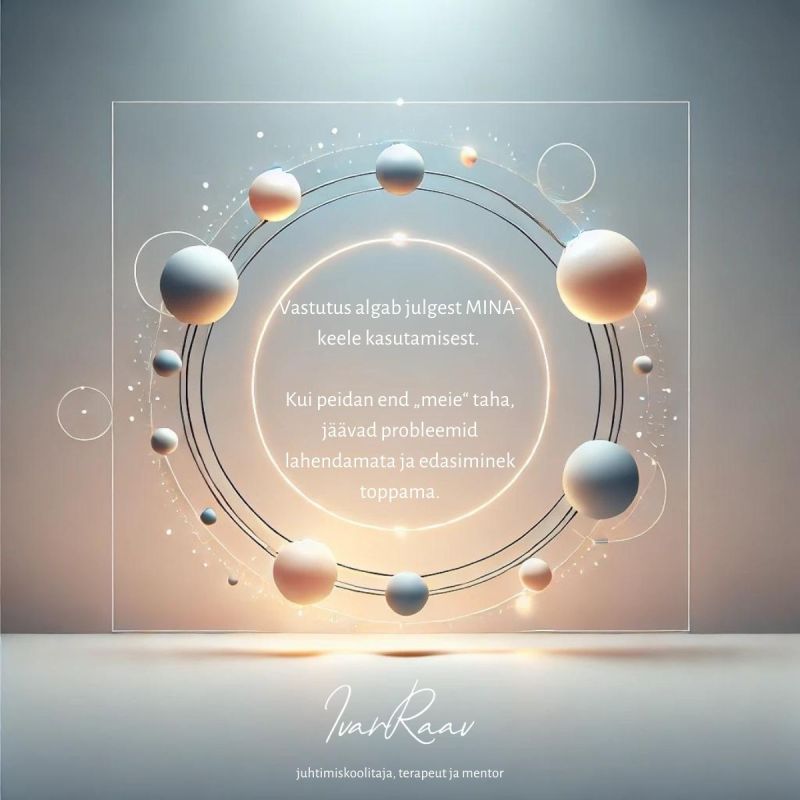One of the major barriers to commitment and accountability that I see in organisations is too much “us-ness”.
“We” may sound like a cohesive word, but it often hides something else – avoidance of personal responsibility:
“We didn’t get it done.”
“We should do it.”
“We didn’t get it done.”
“We have a common purpose.”
I very much agree with everything you say, but…
… MEIE saab tekkida MINAde tulemusena. Üks olulisimaid puudusi, mis organisatsioonides on, on inimene ise indiviidina. Indiviidina, mitte inimressursina, kaadrina või personalina. Igapäevase praktilise küsimuse mõttes – kas mina ja igaüks minu ümber teab, mis on minu elu isiklik suur mõte ja siht ning kuidas töö ja kollegid selle täitumist toetavad?
Perhaps rephrasing the preceding sentences backwards to forwards:
“My life has a purpose.”
“I made a mistake and will learn from it xxxx.”
“I take the initiative.”
“I didn’t keep the promises I made or took on too many tasks for which I lacked the will or willingness.”.
…. and, in addition, a sentence can change the world: “I need your help” because it assumes I know what I want.
Accountability starts with the brave use of self – it is sincere, honest and necessary. If everyone hides behind ‘us’, problems remain unsolved and progress stalls.
Do you dare to be more ‘me’ in your work and take responsibility? What could change if you and your team started to move from you-mom-my-language to me-language? Experience shows that a lot changes afterwards.
The coming together of the deeply personal, alone unattainable goals of the self constitutes our purpose. We-ness is necessary, but without contact with the self, there can be no sense of us.

